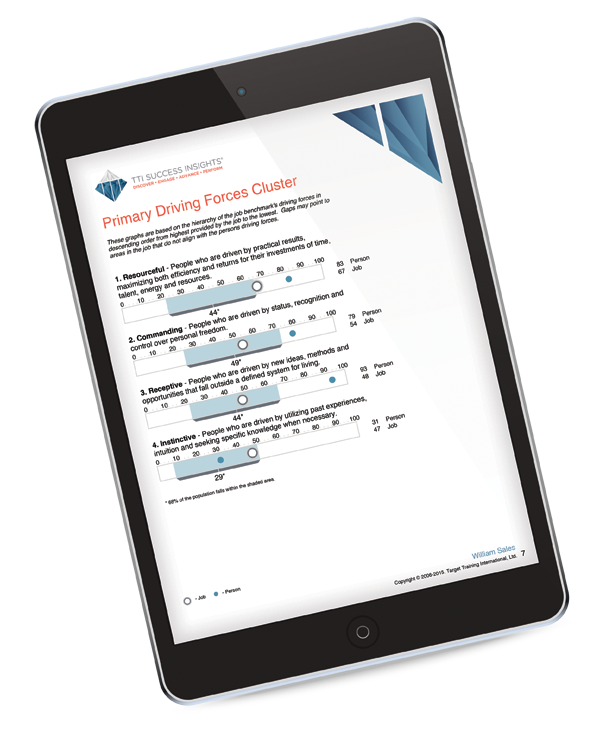A Simple: How to Understand and Evaluate Your Team
Understanding and Evaluating Others

Did you ever have one of those teachers who just got you? The one who seemed to see you at your very best, and always said exactly what you needed to hear to motivate you? I did. I still remember to this day what he said to me when I left Primary School. He told me ‘To thine own self be true.” I’m not sure I really understood it at 12 years of age.
Over the years though, it came to be a touchstone for me, something to go back to and reflect upon, when I’m being anything but true to myself. I still wonder at the wisdom and character of the man, he was in every sense a Leader. Someone who truly loved to teach, who clearly saw each child’s potential and genuinely valued each one as an individual.
From where I sit now, I realise that he was rare. How many of us hold our people’s true potential in our mind’s eye? How many of us Leaders really know their unique traits and abilities? Do we know their challenges and their strengths? Do we know if they are married, divorced, have children or what they are passionate about?
If you think this is frivolous and not an essential part of your role as a Leader, then I’m here to tell you that you are fundamentally wrong. This is one of the most important jobs you have as Leader.
Define Understanding and Evaluating Others?
Understanding and Evaluating others is the ability to see the individuality in a person, to recognise that they are unique and to understand what their particular point of view, attitudes traits and skills might be.
Ron Price says ‘it begins with recognising that people see the world differently to you. They get things done differently to you, they have different talents to you.’ For a leader it’s crucial because they recruit people.
‘Their job is to identify talents and connect the talents to the job. If you hire the right person for the right job in the right way, probably 70% of your job is done. Most of our problems in understanding and evaluating others start there. If you didn’t get the fit from the beginning, then all the coaching and training in the world may not sort the problem for you.’
Why is understanding and evaluating others essential?
There was a study done at Michigan State University by John Hunter where he wanted to find out how well entrepreneurs identify talent and hire people who end up being superior performers. A lot of leaders will tell you that they know by the first 20-30 seconds they have made a decision as to whether or not a person is right for their organisation. When Hunter evaluated his research he found out that these entrepreneurs were right, they were able to identify superior talent at exactly 14% of the time!!
Leaders need to understand that results flow from relationships in an interdependent, fast-changing world. Effective relationships cannot exist unless both parties understand each other.
Can you afford to get Understanding and Evaluating others wrong 86% of the time?
In his book The One Thing You Need to Know… About Great Managing, Great Leading and Sustained Individual Success, Marcus Buckingham suggests that great managers believe:
- Almost everyone wants to do great work (Do you fundamentally believe that?)
- Individuals come to their work with unique and enduring talents that can be productively applied
- The best results come from helping people develop their talents into sustainable performance.
The principle managing style that he focuses on in the book is organising around people’s strengths. We were mostly taught to focus on weaknesses and help people fix them. But as a leader you should spend from 70-80% of your time leveraging people’s strengths and encouraging them to get better. So it’s crucial that you effectively understand and evaluate your people.

The Simple: How To Understand and Evaluate Others
- Firstly you need to slow down enough to recognise that your goal is to identify the unique traits and capabilities, the unique skills of that individual and that takes time.
Converse with your Team, have a culture of dialogue; ‘eye to eye, heart to heart, mind to mind, achieve greatness and productivity.’ Ranjit Nair (TCL Faculty)
Adopt the mantra: “In my walks, every man I meet is my superior in some way, and in that I learn from him.”
Ralph Waldo Emerson.
- Be aware of the obstacles; your own background, your attitude, values, your biases, your need to be right, your own inability to listen or hear where someone else is coming from. Every time you choose not to ask a question of someone else, you choose not to learn says Mindy Bortness (TCL Faculty)
- Use both a heart and mind approach. From the heart you believe that everyone is capable of something great and that your job as Leader is to help them get there. From the mind you use the best tools you have available to you to assess your people.
There are many powerful tools designed to help you understand people at a much deeper level. If a Leader takes the time to learn how to use them, it can give us a huge advantage over our competitors in the way that we build our Teams. These are robust psychometric tools, online surveys that are scientifically validated that create a map to help us understand a person’s traits. You may have heard of TTI DISC or MBTI to name but a few.
There are six in particular we use at TTI Success Insights Ireland based on different combinations, understanding their natural behavioural style, how people respond to problems, how do they deal with people, how they deal with change, or quality issues, rules or standards set by someone else. There are 29,000 different patterns looking at a person’s behavioural style!
Next we look at what drives them? What are their underlying Motivators? What causes them the greatest sense of fulfilment and is therefore going to optimise their engagement in the work that they do. There are very specific ways you can measure this and apply it to the kind of work they’re doing.
Thirdly we’re looking at their preferences or their Values, they way they make judgements about things. We have ways to measure where we can dip into their subconscious and understand how their subconscious is influencing their decision making, and the way that they respond to people or practical issues around them or to the concepts and the structures and the ideas that they are organising their work around.
Next we use a tool to understand their Emotional Intelligence. How well do they understand their own emotions, control them and use them in a productive way? How well do they understand and relate to the emotions of others? How do they use those to get more done as a group than they would individually?

Finally we measure how they respond to Stress and two different tools to understand their current mastery of over 30 different Skills (Competencies) that might relate to leadership or sales or communication.
By using these tools we advance our understanding of others dramatically. With a lot more wisdom we can organise around those strengths and be a lot more productive as a person and we can elevate the success of our group and our organisation.
Final Thoughts
Understanding and evaluating people is essential to a Leader to leverage your people’s strengths, sustain high performance and stay ahead in the market.
Bring your heart to the table, believe that everyone has greatness and make it your mission to find it.
Understanding your people using your gut is only serving you 14% of the time! You need a comprehensive approach providing accurate scientific data. Find out more about a robust Psychometric system like TTI’s Science of Self.
Our Complete Leader Ireland Programme is a year long fully customisable programme tailored to the leader and to the company’s needs. We use our TTI assessments to enable you to achieve personal and professional development and develop your Leadership competencies. What difference would this programme make to your Senior Team’s performance in 2018?
If you are hungry to grow, have the appetite and self-motivation to become a better leader, then this programme is for you.
10 Things Successful People Do Every Day
What if there was a secret formula for success that you could copy? Kevin Kruse best selling author recently interviewed more than 200 highly successful people to find out what their number 1 secret to productivity? These people included 7 billionaires and 13 olympians. The answers have been distilled into 10 Simple Steps you can follow to achieve your own success.
5 mistakes people make with the DISC profile
When you are hiring, you need to use more than DISC. DISC is outwardly observable behavioural tendencies. What goes on beneath the surface is harder to read but even more powerful. What if you could see what a person values and is driven by, be it money, status, helping others? How much engagement could you get from your employees if you had this information at your finger tips. Using DISC correctly and in conjunction with the other TTI Tools is essential for your organisation’s success.
3 Easy Steps to Building a Solid Company Culture
Companies need to reimagine how they attract – and retain – employees by giving them what they desire, resulting in keeping them happier and more engaged. I am unique. So is every other employee. Companies would be wise to get to know their employees on a personal level and find out what is truly important to each and every one of them. Then, create a unique plan for each person that helps the employee achieve what he or she strives to achieve.

FREE DISC Assessment: Find out what your behaviours really are!
Have you ever taken a DISC Assessment? Actually… Have you ever taken a TTI DISC Assessment? Well why wait any longer, lets find out why you really behave the way you do!



